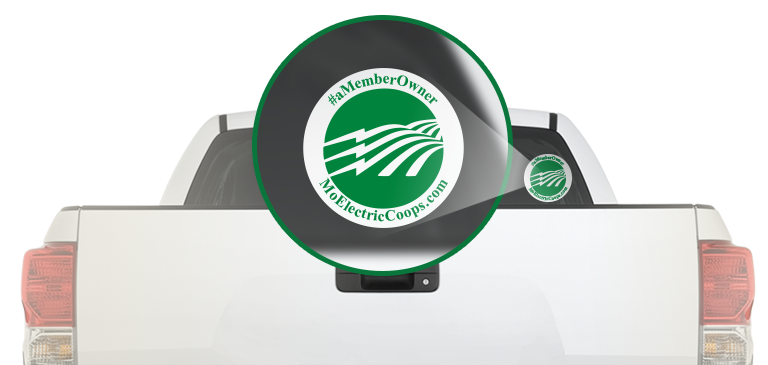Your Missouri Electric Cooperatives advocate every day for the state and national policies that will help us to provide you, our Member-Owners, with safe, reliable, and affordable electric power. What follows is a list of key terms and phrases that you might hear us use when we’re talking about energy legislation.
We hope this index of terms will help you to understand some of the nuances of energy policy, and that it will make you more likely to feel comfortable advocacy for your own community’s electricity needs.
Base Load Resources: According to Wikipedia, “Base load power sources are power stations which can consistently generate the electrical power needed to satisfy minimum demand (source).” Nuclear power and coal power are examples of base load resources.
Coal Power: Coal generates electricity when it is burned. Coal power is reliable, plentiful, and inexpensive, but environmental and health concerns have put the use of coal power in steady decline.
Distributed Energy: “Distributed energy resources (DER) are smaller power sources that can be aggregated to provide power necessary to meet regular demand (source).”
Distribution Expenses: The costs your Cooperative incurs as part of providing you, our Member-Owners, with reliable, affordable power. Examples of distribution expenses include administration, operations, maintenance, depreciation, interest, and margins.
Demand Costs: Your Cooperative’s overhead costs of owning and maintaining energy transmission and generation facilities.
Grid: The interconnected network that Missouri’s Electric Cooperatives use to deliver electric power to you, our Member-Owners. The grid includes power generation stations, transmission lines, demand centers, and distribution lines (source).
Hydropower: Clean, renewable electricity that’s produced by moving water.
Intermittent Renewable Energy: A renewable energy source, like solar power, that isn’t always available. Solar power is only able to be generated, for example, when the sun is shining.
Kilowatt Hour: A measure of electrical energy equivalent to a power consumption of 1,000 watts for 1 hour.
Kilowatt Hour Charge: The Kilowatt Hour Charge on your power bill is made up of three parts — energy (kilowatt hour), demand (kilowatt), and distribution system expenses. The majority of revenue needed to cover your Cooperative’s distribution costs comes from you bill’s kilowatt hour charge.
Member Charge: The Member Charge is a fixed fee on your monthly electric bill that helps your Cooperative recover a small amount of the fixed distribution costs of serving you, including expenses like administration, operations, and maintenance.
Net Metering: Net metering is a process that enables Missouri’s Electric Cooperative Member-Owners with a solar or wind system on their home or business to export power that is in excess of their immediate on-site needs. If a Member-Owner generates more power than he or she purchases from your Cooperative during the monthly billing period, your Cooperative issues the Member-Owner a credit.
Nuclear Power: Nuclear power is a base load power resource that provides continuous (not intermittent) electricity that is generated at nuclear power plants.
Peak Load: The times of day when you, our Member-Owners use the most electricity. Across Missouri, our Member-Owners are “on peak” during the hottest and coldest summer and winter months, and at the hours of the day when your family is home from school or work.
Renewable Energy: Renewable energy is energy that comes from a source that isn’t depleted when the energy is used. Examples of renewable energy include hydro, solar and wind.
Solar Array: When solar panels are wired together, they’re called a solar array. Solar arrays produce intermittent, clean, renewable energy.
Take Control & Save: An initiative of your Missouri Electric Cooperatives that helps you, our Member-Owners to save power (and money) at home and at work. Learn more here.
Time of Use (TOU) Rates: TOU rates are variable rates. Using TOU rates, you’re charged for the power that you use at the time of the day (on peak or off peak) that you use it.
Wind Energy: Clean, renewable electricity that’s produced by wind turbines, better known as windmills.
Have questions about words or phrases that you don’t see on our list? Leave a comment or drop us a note on Facebook, and we can add new definitions to this list!
Learn more about Missouri’s Electric Cooperatives, and how we work to provide safe, efficient energy to rural Missouri by following us on Facebook, Twitter, YouTube, and Instagram.

